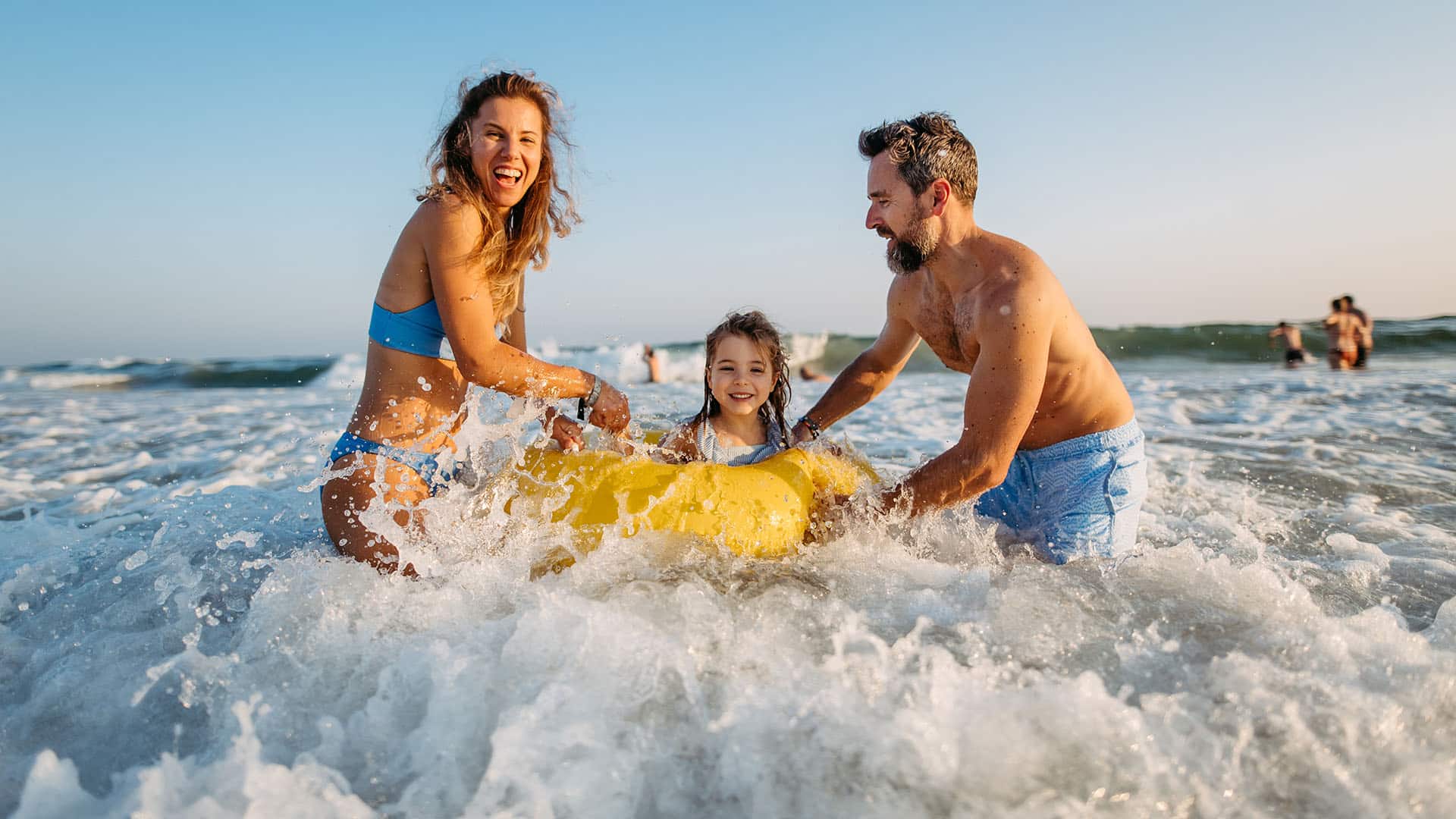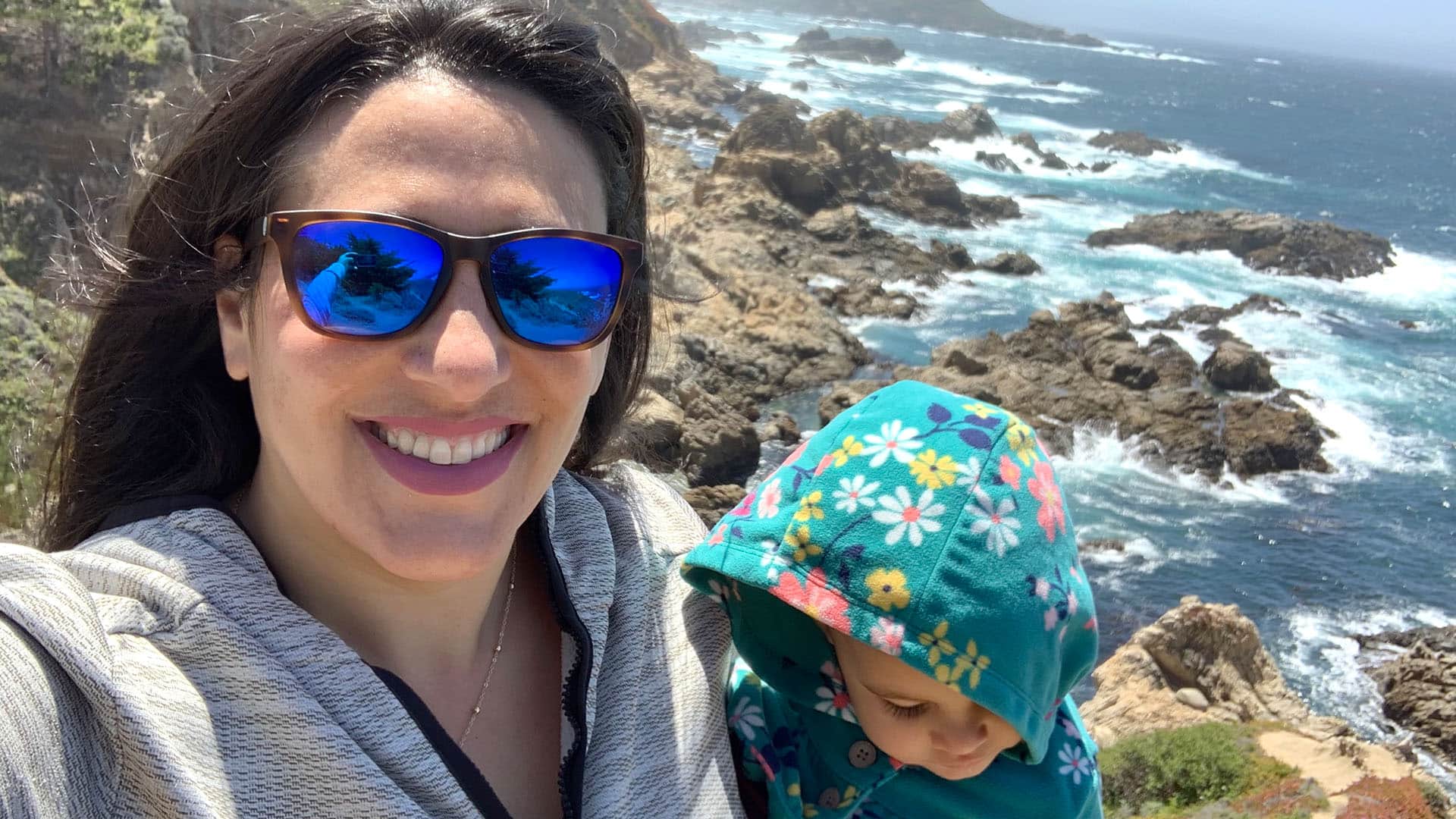
The author and her daughter stopping for a hike off of California Route 1 in Monterey, California. (Photo: Talia Salem)
Tips + Trends11 Tips for Traveling with Your Toddler with Autism
By Talia SalemMy husband and I have always been avid travelers, and traveling has become such an important part of us. We’d always wanted to share the experience of traveling with our family when we eventually had one, so we started taking our daughter on day trips when she was just weeks old, and as she grew, on road trips and other travels.
When we learned that our daughter had Turner Syndrome, and when she was later diagnosed with autism, we didn’t really know what that meant for our family and our future travels. We were so nervous to take her on planes, long car rides and overnights in hotels. The truth is many families with children or parents on the spectrum are anxious about traveling.
In fact, the International Board of Credentialing and Continuing Education Standards (IBCCES) found that 78 percent of families they surveyed are hesitant to travel or visit new locations because they or their child are autistic. New food, new environments, new sounds, different smells, different time zones, new sleeping environments and more can be dysregulating to someone with autism. These stressors can make family travel even more daunting.
Any parent will tell you that traveling with the whole crew can be a challenge, but there are some things you can do to make your trip more enjoyable. Now that our daughter is 3, we have learned how to travel with her and support her in these changes in environment. We are happy to see her budding into a little explorer. Here are some tips we’ve learned from traveling with our toddler.
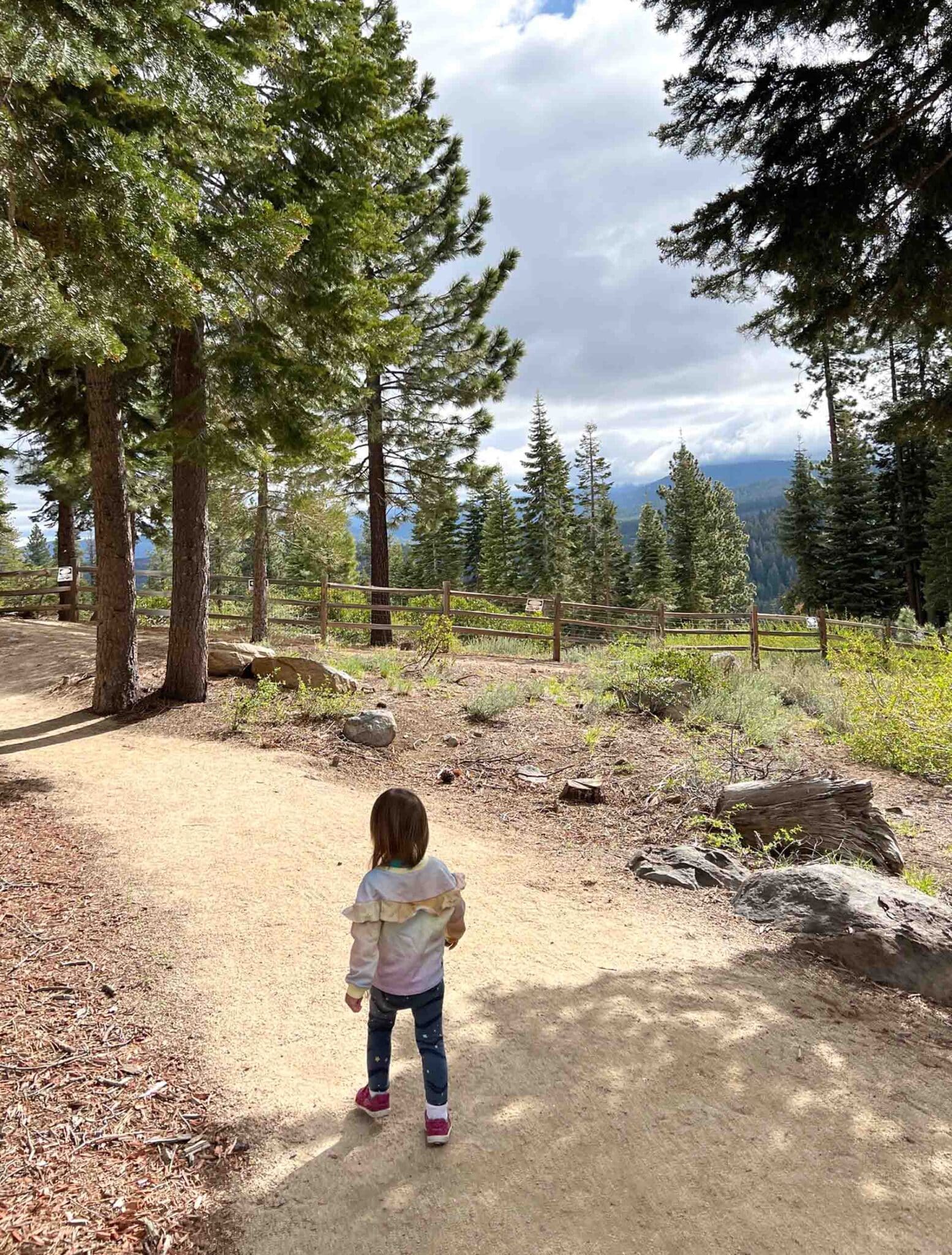
Prepare Your Child with Social Stories
For weeks prior to travel, tell your child about the trip. Explain how you are going to travel there (airplane, car, train, etc.), who you are going to see, what you are going to do and how long you are going to be gone.
Before our daughter’s first plane ride, we showed her videos of other toddlers traveling on planes, the airport experience and activities on the plane. When we got to the airport, she was excited to see the airplanes and knew what to expect.
Ask Your Travel Providers for Accommodations
Think about your specific child or situation and request rooms away from bright lights and loud noises like elevators, ice machines or trash chutes. Ask for a rollaway bed if your child prefers to sleep solo or for an adjoining room for quiet space.
Don’t hesitate to ask for help to meet your family’s needs. You can also work with a Certified Autism Travel Professional for additional travel planning support.
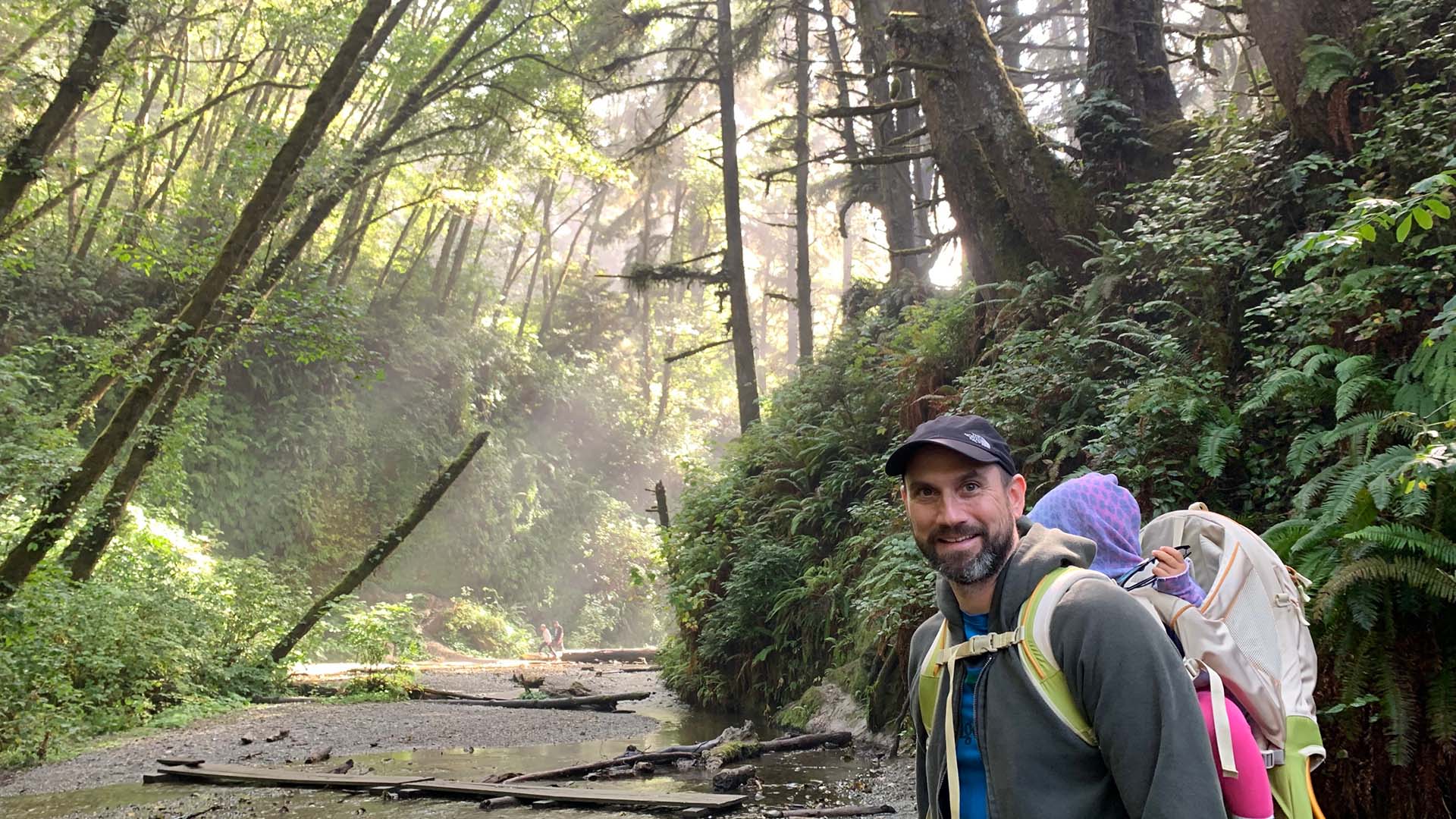
Research the Experience
Before selecting a travel experience or provider, research what that experience entails. Read reviews: You can do keyword searches on most review platforms for terms that matter to you, like “accommodations” or “autism.” Contact the travel provider to find out what to expect and how the provider can accommodate your needs.
For our family, restricted spaces and lines are especially challenging, and we like to know what to prepare for in advance or adjust our plan.
Bring the Comforts of Home
On one of our first trips to Monterey, California, we neglected to bring our daughter’s favorite stuffed bunny. She cried practically all night for two nights, and we didn’t know why. Needless to say — no one slept.
Now we bring essential toys from her daily routines (bath toys, play toys, nighttime stuffed bunny and favorite books) to make her feel safe throughout the day. She really looks to those items to signify different times of the day and make her feel relaxed.
Pack Regulating Snacks
While we love trying the local food when we travel, we also bring some of our daughter’s favorite snacks, like dried fruit bars, nuts, string cheese and puffs. We try to pack crunchy snacks with protein, carbs and fat to keep her full for longer. Our occupational therapist taught us that crunchy and chewy foods help her calm down and regulate her nervous system — it really works.
“Crunchy and chewy foods give sensory input into the mouth. The act of chewing pushes resistance deep into the ligaments and tendons of the teeth and jaw to release serotonin, which supports regulation,” says Larissa Geleris, pediatric occupational therapist and founder of Steady Parents. “It can either help calm down a child in times of overwhelm or can be used to increase alertness in times of low energy. And because it does both, it’s the best strategy to use when you don’t know what’s needed but you know they need something!”
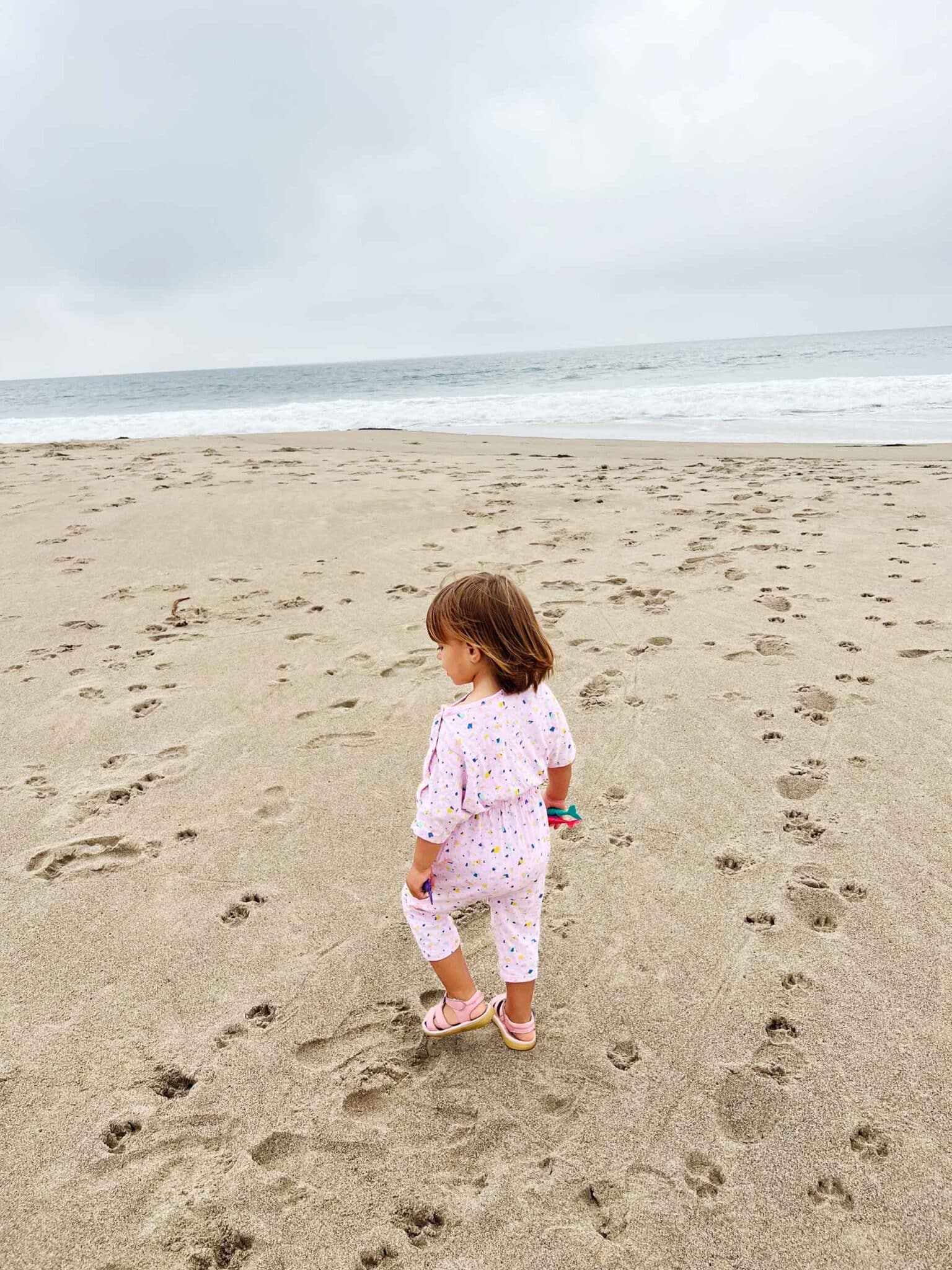
Regulate Yourself
We’ve all been there: You’re rushing around the airport, trying to find somewhere for dinner while your child is melting down — and your mood just makes things worse. It’s important to remember you are a key player in the family dynamic. Children feed off of your energy, and if you are stressed, your child will feel it.
Taking care of yourself matters, and it is part of taking care of your family. “When you make sure you are eating, drinking enough water, slowing down, breathing deeply, you are also supporting your child’s ability to regulate in the moment,” Geleris says.
Take Breaks
While on a family vacation in Hawaii, I found myself worrying about food, my daughter’s sensory input, where we could find playgrounds and more. It was taking away from the vacation, and my husband and I were stressed out.
We discussed organizing some individual breaks so we could actually relax. I was happy to take a break and indulge in an amazing Lomi Lomi massage from The Spa at Koala Landing in Kauai and spend a few hours by the gorgeous pool. I really needed that time away.
Find Regulating Activities for Your Child
Our daughter is a sensory seeker, so she craves movement, bouncing and swinging. We have found some pretty amazing playgrounds on our adventures, including a train-themed playground on our recent stay at The Ritz-Carlton, Lake Tahoe. She even got to ride the train, which she loved … waiting in line for the train was a whole other story.
We also found this amazing inclusive playground at Lydgate Beach Park on Kauai with all sorts of unique sensory-regulating equipment that she loved. You can also find other regulating activities without leaving hotel grounds, like going on a walk, digging in the sand, listening to music, and playing with hotel pillows.
If you don’t have access to equipment or a playground, being outside can be a very regulating activity.
“Much of the time, visual and auditory input is reduced by being outside. Tired and overwhelmed eyes have more opportunities to rest, and the echos or deep purring of background appliances are eliminated,” Geleris explains. “Additionally, there is increased opportunity for movement, which can be extremely helpful.”
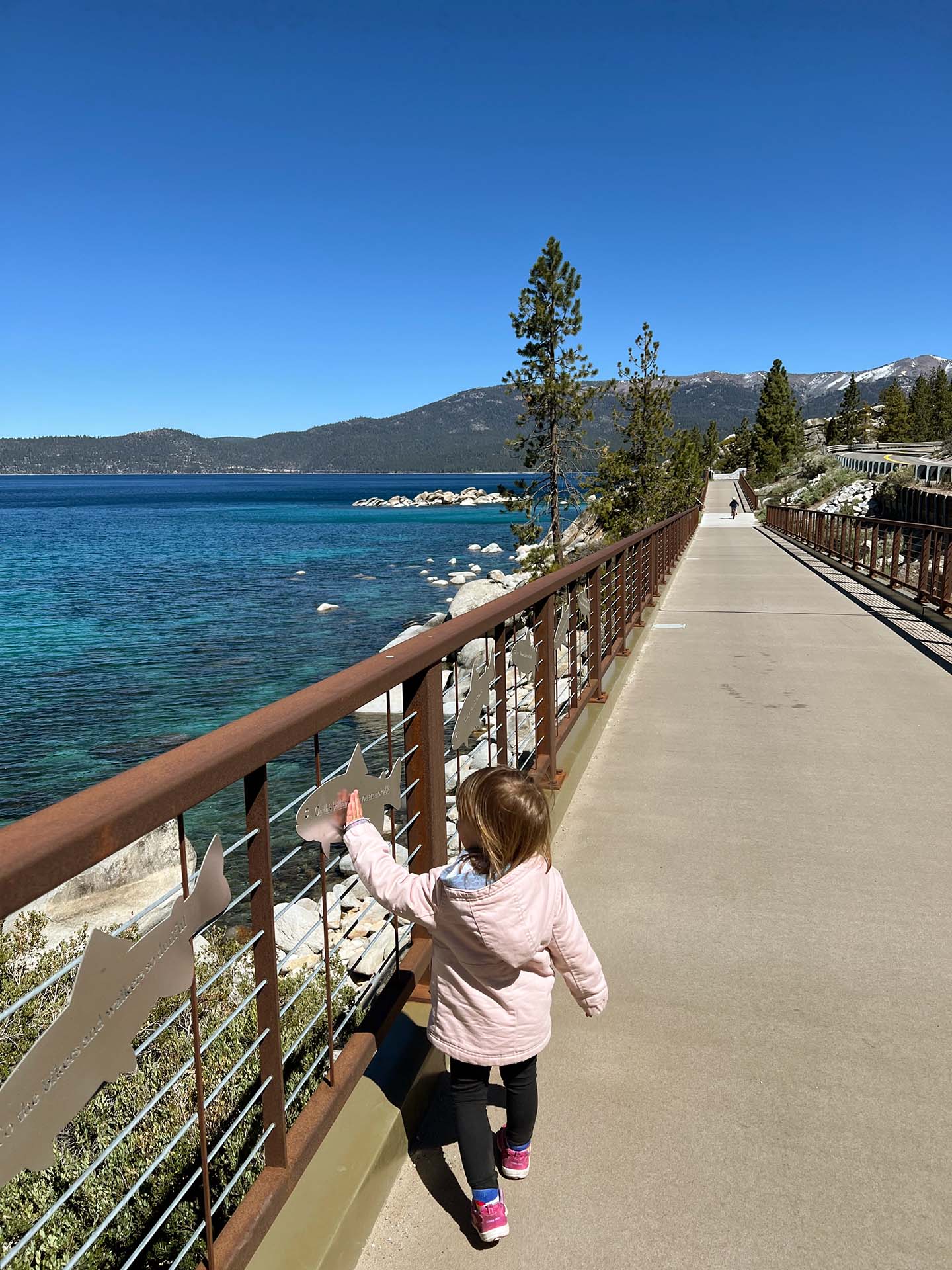
Be Flexible
Plan for lots of downtime and don’t overload your itinerary. Allow you and your child to settle into the vacation and get acclimated. Geleris offers the advice of thinking about the goal of your vacation. Are you looking to connect? Relax? Both?
“By planning for downtime, you are gifting your family with the time to shift back into a parasympathetic (relaxed) state, which is the state that allows you to connect with one another,” she adds. “Spend intentional time entering into your child’s world, doing what they love to do, without the looming to-do lists that you have back home.”
Breath Through the Tough Times
There are just some experiences that come up that can be tough, and there really isn’t too much you can do. For example, even though my family all signed up for TSA PreCheck, we still got stuck in a monster security line on our way home from Hawaii. Our daughter really struggles with waiting in line, and the rain and the noise just made it worse — she screamed and fussed for the whole 45 minutes.
Then I got stopped for an additional security screening as my daughter was running away through the airport not looking back. Running away, or “eloping,” is common with autistic kids, and it was really scary in a crowded airport. Not surprisingly, we arrived on our plane flustered and frustrated. Once we finally settled in, I had to remind myself we were just doing our best.
Geleris advises us to focus on self-compassion in these moments of stress.
“When you approach these difficult moments with self-compassion — ‘Wow, this is really scary right now; I’m feeling helpless in this moment; it makes sense that I’m getting flustered’ — you actually start to shift your nervous system into a state of safety, which allows you to access your thinking-brain again and come up with a plan,” she says.
To help calm your nervous system she recommends using regulating techniques like doing deep hand massages, chewing gum, or wiggling your toes and feeling the input of them into the ground. These exercises of grounding yourself into your body also help you shift out of fight-or-flight mode so you can make it through a difficult situation.
Don’t Worry About Everyone Else
When your child melts down or behaves differently than other kids, it is easy to be self-conscious. But the truth is we know our kid is different from other kids, and the behavioral expectations should also different.
People you will never see again at a restaurant or on a plane don’t know all that you are doing to support your family or make a vacation happen. I have confidence in knowing traveling is good for my daughter and these experiences will enrich her for life.
Geleris leaves us with some very important advice to keep in mind when we travel.
“Remember, even if your child screams the entire airplane ride, makes a mess at dinner or has a meltdown in the grocery store, everyone around you will get to their destination, eat their dinner or buy their groceries anyway,” she says. “Release yourself from the guilt and the need to fix it and focus on what’s best for you and your child.”





